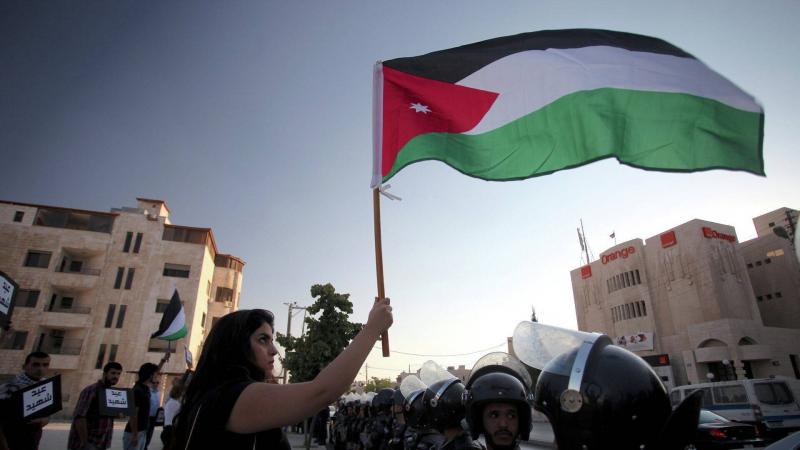Each party involved in the Gaza war expresses its crisis in its own way. The Israeli crisis appears to have two facets. The first is internal, largely related to Benjamin Netanyahu's refusal to exit the political stage, while the second is existential. The existential aspect of the Israeli crisis is linked to the deterrence power that suffered a significant blow due to the "Al-Aqsa Flood" attack. There is no Israel without possessing the deterrence power, which it lost as a result of "Al-Aqsa Flood" launched by Hamas, completely transforming the Israeli state into a monster whose sole aim is to destroy Gaza entirely and displace its people. The Israeli monster is no longer in a position to search for any political solutions that consider the existence of a Palestinian people that cannot be overlooked, no matter how much time passes and circumstances change.
While waiting for Israel to emerge from its crisis—which requires Netanyahu to leave politics for his home or jail—there is no other option for the Israeli state but to continue the war on Gaza. Israel will continue its war despite the possibility of reaching a ceasefire. Nothing prevents the formal commitment to a ceasefire while simultaneously continuing the war by targeting specific objectives. What may assist in announcing a kind of ceasefire, which is more akin to a lull or a humanitarian low-intensity war, is that the United States currently lacks leadership capable of decisively resolving matters with Benjamin Netanyahu.
From this standpoint, there is nothing preventing the Israeli Prime Minister from responding to the American request, meaning to continue his war relying on specific criteria as desired by President Joe Biden. Biden was provoked by Israel's killing of volunteers from Western countries, including an American citizen from a charity known as the International Central Kitchen. The American president succeeded in imposing upon the Israeli Prime Minister the opening of land crossings, including Kerem Shalom, to deliver humanitarian aid to the starving Gazans.
However, the most important factor that Israel can benefit from under these specific circumstances is the situation that Hamas suffers from, particularly in light of its inability to complete a deal regarding the Israeli captives it holds. Hamas has no card other than the captives, for whom it seeks a price that the current balance of power does not allow it to obtain. The price that Hamas wants, which is impossible to achieve from the American and European sides as well, is the most significant factor that will allow Israel to continue its war on Gaza.
Hamas wants a permanent ceasefire, a complete Israeli withdrawal from Gaza, and the reconstruction of the Strip. The movement does not publicly state that it seeks to return to ruling Gaza as if nothing had happened at a time when it has only the hostage card. There is a complete disregard for the reality on the ground, which is that Israel has managed to destroy a large part of Gaza and displace one and a half million Gazans from their homes, which no longer exist.
Who will help remove Israel from its crisis, and who will extricate Hamas from its incapacity to confront the reality that has left it in a state of continuous retreat? Israel retreats into war, given that Benjamin Netanyahu has no alternative but war. The tragedy is that the Israeli society, which largely opposes "Bibi" remaining as prime minister, supports the continuation of the war. Israelis support the war because every Israeli now knows that failing to restore deterrence power will force them to leave the "Promised Land" someday.
Whether we like it or not, it will be difficult to convince Israelis of the establishment of a Palestinian state without Arab and international efforts that ultimately lead to securing specific guarantees that prevent the repeat of the "Al-Aqsa Flood" experience in the future. Israel currently does not grasp that there is no escape from recognizing the Palestinian people and their legitimate rights on Palestinian soil. It does not understand that it cannot evade this obligation indefinitely. On the other hand, Hamas does not realize that it has politically and militarily ended, and that the most it can achieve is for its leaders still in Gaza to live outside it.
What is unfortunate is that Hamas, which proves daily that it coordinated with Iran in the preparation for "Al-Aqsa Flood" and afterwards, cannot escape its crisis by inciting against certain Arab states. The movement does not understand that those countries it incites against, foremost among them the Hashemite Kingdom of Jordan, are not easy targets. The evidence is that Jordanian King Abdullah II is confident enough in his position to decide to undertake a "special visit" outside Jordan.
Palestinians in Jordan may go down to the streets and riot for a day, two, three... or even ten days. But what comes after that? Those who suffer from ignorance do not realize that Hamas has no experience that is valid for Arab-wide generalization. The "Islamic emirate" it established in Gaza since mid-2007 was a failed project that only benefited Israel. The siege on Gaza was always an Israeli-Hamas siege. Both sides bet on each other until it became clear that the movement had other calculations in light of its relationship with the "Islamic Republic" of Iran.
Just as Israel must have enough courage to acknowledge its deep crisis, the movement must convince itself that there is no future for it, neither in Jordan nor elsewhere, nor in inciting against this Arab state or that. The most important realization for it is that the majority of Jordanian citizens, who are of Palestinian roots, find no safe place outside the Hashemite Kingdom of Jordan. Only the ungrateful Palestinian targets Jordan!




